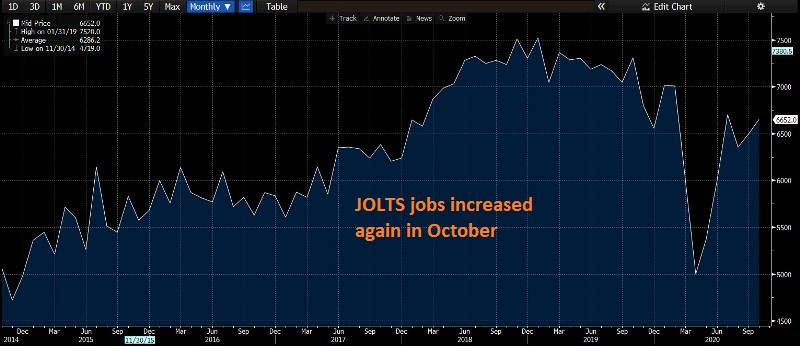
It is possible to purchase a private real-estate investment trust (REIT), which allows you to invest in multiple real-estate properties. Your investment strategy, risk tolerance and investment time horizon are all important. There are pros and cons to both private and public REITs. While there are advantages to both, investing in a public REIT may be the better choice for you.
You can easily and quickly purchase publicly traded REITs. They offer liquidity. They can be purchased and sold anytime during exchange hours. They have higher growth potential and dividend payouts. Public REITs often have more skilled management teams, which can offer investors an advantage.
Private REITs are, however, not publicly traded and are therefore not subject to the same regulatory oversight. They are typically exempt from SEC registration and Regulation D requirements. There are several exemptions that allow private REIT shares to become available. Additionally, these securities have some regulatory restrictions. You will need to be a skilled investor to fully understand the potential risks associated with investing in these non-publicly traded securities.

Private REITs are usually sold only to accredited investors. These investors must meet certain income and net worth requirements. Private REIT investors need to have at the very least $1 million of investable assets, and at least $200,000 in annual income to be eligible to invest in them.
Private REITs have a higher ratio of dividend payouts than public trusts. This allows them to protect investors from market downturns. Some private REITs, however, may not be able to pay out dividends due to cash flow constraints. Investors could be exposed to tax liabilities. Private REITs may also charge a large upfront fee. This fee is used to pay expenses for marketing and sales commissions. This fee can vary from 1% up to 12%.
A registered investment advisor typically manages private REITs. They typically charge small fees to handle administrative tasks such as asset management. They also charge a performance management fee, which is a percentage of total equity return. The management fee is generally higher than that charged by public REITs.
Private REITs are usually sold through financial advisers or brokerages. The broker dealer receives a generous fee structure. It is important to choose the right advisor. This person will be able to help you evaluate the potential risks and opportunities of private REITs.

Publicly traded REITs are easier to liquidate than private REITs. You may have to pay a fee to private equity firms in order to redeem your shares. Private REITs may also require that your shares be held for a specified period. It can be challenging if the market fluctuates. You should take a good look at your prospectus to see what fees you may incur.
FAQ
How do you choose the right investment company for me?
You want one that has competitive fees, good management, and a broad portfolio. The type of security that is held in your account usually determines the fee. Some companies have no charges for holding cash. Others charge a flat fee each year, regardless how much you deposit. Others charge a percentage of your total assets.
It is also important to find out their performance history. If a company has a poor track record, it may not be the right fit for your needs. Avoid low net asset value and volatile NAV companies.
Finally, you need to check their investment philosophy. A company that invests in high-return investments should be open to taking risks. They may not be able meet your expectations if they refuse to take risks.
How are Share Prices Set?
Investors are seeking a return of their investment and set the share prices. They want to make money with the company. They buy shares at a fixed price. If the share price goes up, then the investor makes more profit. If the share price falls, then the investor loses money.
Investors are motivated to make as much as possible. This is why they invest. It allows them to make a lot.
How do you invest in the stock exchange?
You can buy or sell securities through brokers. A broker can sell or buy securities for you. Trades of securities are subject to brokerage commissions.
Brokers usually charge higher fees than banks. Banks offer better rates than brokers because they don’t make any money from selling securities.
A bank account or broker is required to open an account if you are interested in investing in stocks.
If you hire a broker, they will inform you about the costs of buying or selling securities. This fee is based upon the size of each transaction.
You should ask your broker about:
-
You must deposit a minimum amount to begin trading
-
If you close your position prior to expiration, are there additional charges?
-
What happens to you if more than $5,000 is lost in one day
-
How many days can you keep positions open without having to pay taxes?
-
How much you can borrow against your portfolio
-
Transfer funds between accounts
-
How long it takes to settle transactions
-
The best way for you to buy or trade securities
-
How to Avoid Fraud
-
How to get assistance if you are in need
-
Can you stop trading at any point?
-
whether you have to report trades to the government
-
Reports that you must file with the SEC
-
whether you must keep records of your transactions
-
Whether you are required by the SEC to register
-
What is registration?
-
How does it affect me?
-
Who is required to register?
-
What are the requirements to register?
How are securities traded?
The stock market is an exchange where investors buy shares of companies for money. In order to raise capital, companies will issue shares. Investors then purchase them. Investors can then sell these shares back at the company if they feel the company is worth something.
The price at which stocks trade on the open market is determined by supply and demand. The price of stocks goes up if there are less buyers than sellers. Conversely, if there are more sellers than buyers, prices will fall.
There are two methods to trade stocks.
-
Directly from the company
-
Through a broker
What is the distinction between marketable and not-marketable securities
The differences between non-marketable and marketable securities include lower liquidity, trading volumes, higher transaction costs, and lower trading volume. Marketable securities, however, can be traded on an exchange and offer greater liquidity and trading volume. These securities offer better price discovery as they can be traded at all times. However, there are some exceptions to the rule. For example, some mutual funds are only open to institutional investors and therefore do not trade on public markets.
Marketable securities are less risky than those that are not marketable. They typically have lower yields than marketable securities and require higher initial capital deposit. Marketable securities are usually safer and more manageable than non-marketable securities.
A bond issued by large corporations has a higher likelihood of being repaid than one issued by small businesses. The reason is that the former is likely to have a strong balance sheet while the latter may not.
Investment companies prefer to hold marketable securities because they can earn higher portfolio returns.
What is the difference in a broker and financial advisor?
Brokers are individuals who help people and businesses to buy and sell securities and other forms. They handle all paperwork.
Financial advisors can help you make informed decisions about your personal finances. They can help clients plan for retirement, prepare to handle emergencies, and set financial goals.
Banks, insurance companies or other institutions might employ financial advisors. You can also find them working independently as professionals who charge a fee.
It is a good idea to take courses in marketing, accounting and finance if your goal is to make a career out of the financial services industry. Additionally, you will need to be familiar with the different types and investment options available.
Statistics
- Our focus on Main Street investors reflects the fact that American households own $38 trillion worth of equities, more than 59 percent of the U.S. equity market either directly or indirectly through mutual funds, retirement accounts, and other investments. (sec.gov)
- Individuals with very limited financial experience are either terrified by horror stories of average investors losing 50% of their portfolio value or are beguiled by "hot tips" that bear the promise of huge rewards but seldom pay off. (investopedia.com)
- US resident who opens a new IBKR Pro individual or joint account receives a 0.25% rate reduction on margin loans. (nerdwallet.com)
- The S&P 500 has grown about 10.5% per year since its establishment in the 1920s. (investopedia.com)
External Links
How To
How to Trade in Stock Market
Stock trading refers to the act of buying and selling stocks or bonds, commodities, currencies, derivatives, and other securities. Trading is French for traiteur, which means that someone buys and then sells. Traders purchase and sell securities in order make money from the difference between what is paid and what they get. This is the oldest form of financial investment.
There are many ways to invest in the stock market. There are three basic types: active, passive and hybrid. Passive investors do nothing except watch their investments grow while actively traded investors try to pick winning companies and profit from them. Hybrid investor combine these two approaches.
Index funds that track broad indexes such as the Dow Jones Industrial Average or S&P 500 are passive investments. This method is popular as it offers diversification and minimizes risk. All you have to do is relax and let your investments take care of themselves.
Active investing means picking specific companies and analysing their performance. Active investors look at earnings growth, return-on-equity, debt ratios P/E ratios cash flow, book price, dividend payout, management team, history of share prices, etc. Then they decide whether to purchase shares in the company or not. They will purchase shares if they believe the company is undervalued and wait for the price to rise. However, if they feel that the company is too valuable, they will wait for it to drop before they buy stock.
Hybrid investment combines elements of active and passive investing. You might choose a fund that tracks multiple stocks but also wish to pick several companies. This would mean that you would split your portfolio between a passively managed and active fund.